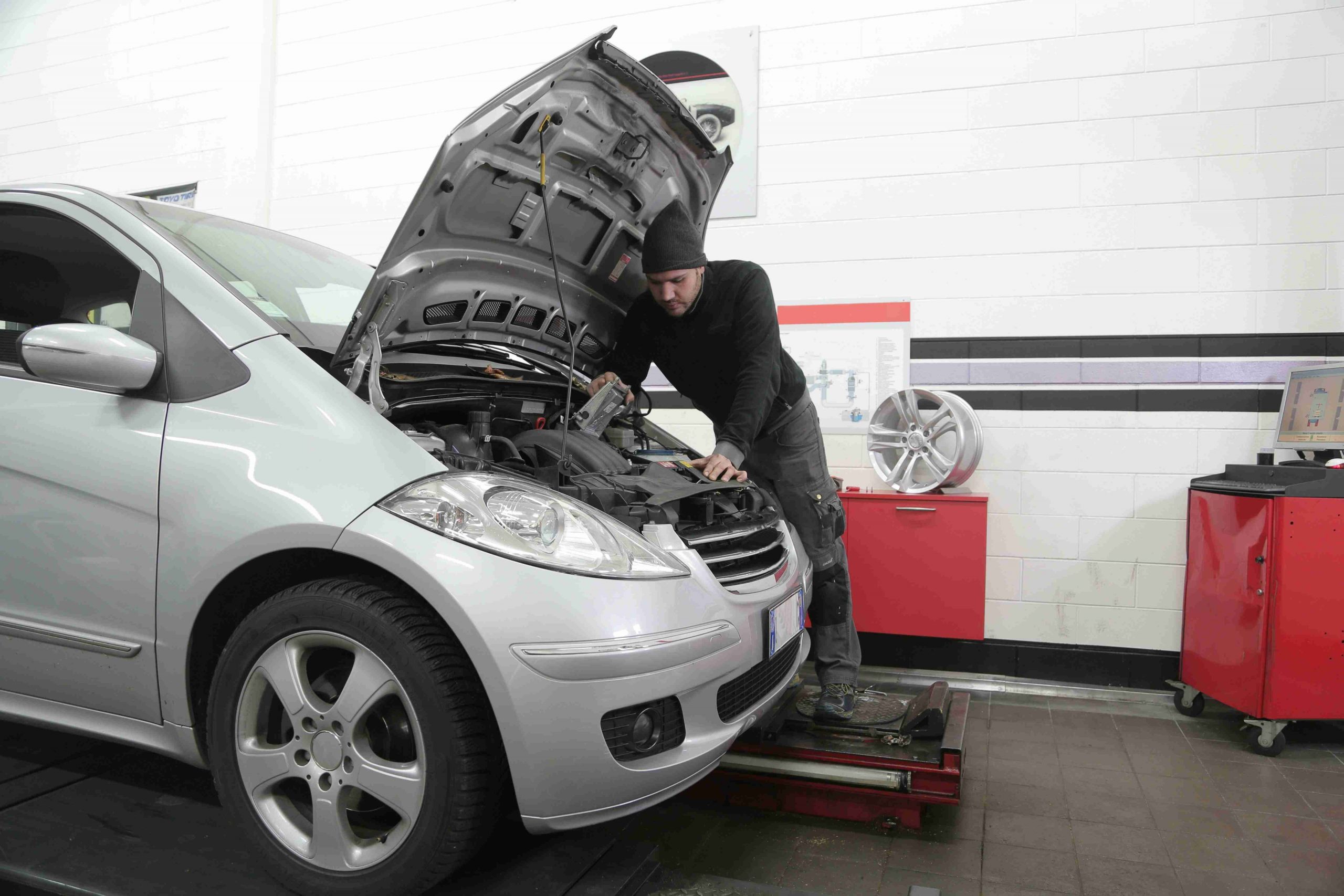Buying a used car in Florida can be smart, but you don’t want to end up with a “lemon” unless you’re shopping at a fruit stand! Have you ever wondered why some deals seem too good to be true? Always run a Florida license plate lookup to avoid scams—it’s your best tool for spotting red flags before you drive off.
Looking for a used car in Florida? Be mindful of common scams that could lead to unexpected headaches. For practical tips on how to steer clear of these pitfalls and make a smart choice, keep reading for smart insights.
Spotting Common Scams in the Florida Car Market

The Florida car market has its share of scams that can affect unsuspecting buyers. Being aware of these schemes and recognizing red flags can protect you from fraud.
1. Title Washing: Scammers may erase negative information from a car’s title, such as salvage or flood damage, by moving it across state lines. Always check the vehicle’s history with services like Carfax or AutoCheck to verify accidents, insurance claims, and title status.
2. Fake Listings: Scammers lure buyers with vehicles priced far below market value. Red flags include:
– Prices significantly lower than the average.
– Sellers avoiding in-person meetings.
– Requests for upfront payment.
3. Odometer Fraud: Manipulating a car’s mileage to appear less used is common. Protect yourself by:
– Cross-checking mileage with service records and history reports.
– Watching for inconsistencies, like excessive wear on a low-mileage car.
4. Other Red Flags:
– Unusually low prices.
– Sellers avoiding in-person meetings.
– Missing or incomplete paperwork.
Researching the Seller’s Reputation
Before committing to a vehicle, it’s important to verify the seller’s credibility to avoid scams or lhidden problems. Whether you’re buying from a private seller or a dealership, start with researching their reputation. For dealerships, read customer reviews on platforms like Yelp, or automotive sites such as Edmunds or Cars.com. These reviews can give you a clear sense of customer satisfaction, transparency, and the quality of service.
Be sure to check the Better Business Bureau (BBB) for ratings and any history of complaints. A solid rating with few unresolved issues indicates a trustworthy business. For private sellers, reputation can be harder to gauge, so ask for references from previous buyers, maintenance records, proof of ownership, and vehicle history reports like Carfax.
It’s also wise to search for any past legal issues, fraud complaints, or negative business practices linked to the seller through a quick online search. This step can shield you from risks such as hidden damages, title issues, or vehicles misrepresented in their listings.
Verifying the Vehicle’s History with a VIN Check
Checking a vehicle’s history with a VIN is key when buying a used car, as it gives a complete look at the car’s past. Using services like CARFAX or Florida’s Department of Highway Safety and Motor Vehicles (FLHSMV), you can get detailed records linked to the VIN. This includes important details such as previous accidents, service history, recall status, and theft reports. These tools gather data from different sources to offer a clear view of the car’s background, helping you spot any potential issues that could impact its safety, performance, or value.
A detailed VIN check or license plate search can also reveal mileage discrepancies, uncover title problems like salvage or rebuilt titles, and confirm the car’s ownership history. This information is invaluable for making a smart decision and avoiding surprises later on. Verifying that the car has a clean history and is in good shape can prevent costly repairs and legal troubles in the future.
Conducting a Thorough Pre-Purchase Inspection

Getting a comprehensive inspection before committing to a used car is key to avoiding costly surprises down the road. Having a trusted mechanic examine the vehicle gives you confidence that it’s been properly checked for any mechanical issues that might not show up during a simple test drive or visual check. A trained expert can catch things like wear and tear, engine troubles, fluid leaks, and other hidden damage that could impact the car’s performance and safety over time. They’ll also evaluate critical systems such as the transmission, brakes, suspension, and electrical components, offering you a clear picture of the car’s overall condition.
Relying solely on the seller’s word or description can be risky—whether it’s due to unintentional oversight or intentional omission. A mechanic’s assessment arms you with the knowledge to negotiate a fair price based on any uncovered issues or even back out of a deal if necessary. This extra step not only helps you make a smarter decision but can also save you from future repair bills or maintenance headaches after the purchase.
Car Inspection Checklist
|
Exterior
|
Interior
|
Engine and Transmission
|
Under the Car
|
Testing the Car in Various Conditions
Test driving a car in different conditions gives a clear picture of how it handles in real life. Start by taking it on the highway to see how it accelerates, stays stable, and shifts gears at higher speeds. Listen for any odd sounds or vibrations and watch for trouble maintaining a steady speed—these might hint at engine or transmission problems. Also, check how well the engine responds during merges or overtakes to make sure it delivers the power needed. This high-speed test is also a great way to evaluate fuel consumption and spot signs of engine strain.
Afterward, take the car through stop-and-go traffic to see how it manages frequent braking and acceleration. This is where brake issues, like squeaking or slow response, become noticeable. Pay attention to how the car handles starting and stopping—jerky movements could point to problems with the transmission or engine mounts. This test also shows how comfortable the vehicle is during everyday driving, especially at low speeds and frequent stops, and how smoothly it performs in city traffic.
Understanding Florida’s “As-Is” Law
Florida’s “As-Is” law plays a pivotal role for anyone looking to own a pre-owned vehicle in the state. Once a car is sold “as-is,” the buyer becomes fully accountable for any issues or defects that surface after the deal is closed. Unless a written warranty is provided or the seller knowingly conceals problems, there’s no legal recourse for repairs or refunds once the sale is final. This makes it vital for buyers to carefully inspect the car, obtain a vehicle history report, and even have a mechanic assess the vehicle prior to sealing the deal. Skipping these precautions could lead to unexpected repair bills soon after taking the car home.
Understanding your rights and potential risks is important in this situation. While Florida law requires that sellers disclose odometer discrepancies and title concerns, mechanical issues typically fall on the buyer in an “as-is” sale. Clarifying whether a written warranty exists is also wise, as some dealers might offer limited coverage or service agreements despite the “as-is” designation.
Handling the Paperwork Properly
Handling vehicle paperwork properly makes the entire transaction smooth and legally secure. Start with transferring the title, which officially shifts ownership from the seller to the buyer. Ensure the title includes vital details like the VIN, sale price, and signatures from both parties. Watch for any signs of an existing lien, as it indicates a financial institution or another entity has a claim on the vehicle due to unpaid loans. Missing this detail could lead to issues later, as full ownership might not be granted until the lien is cleared.
The bill of sale is also important, serving as proof of the transaction and detailing the sale price and any conditions or warranties. Beyond the title and bill of sale, check emissions test records, vehicle history reports, and any applicable warranties. These records confirm that the car meets legal and environmental standards and provide insight into its history. Both parties should keep copies of all documents, as they may be needed for registration, taxes, or future disputes. Thoroughly reviewing paperwork prevents legal or financial complications later and instills confidence in the transaction.
Avoiding Scams with Online Listings
When browsing online classifieds or marketplace listings, keep a healthy dose of skepticism, especially if a deal seems too good to be true. Scammers often attract potential buyers with unrealistically low prices or exclusive offers that look like a steal. If a seller is located out of state and pushes for a quick sale without letting you see the item in person, that’s a major warning sign. Always check the seller’s credibility by reviewing their ratings and the overall quality of their listings. Trust your gut; if something feels off, it’s wise to walk away.
Another common trick used by scammers is to ask for payment through unusual methods, like gift cards or wire transfers. These payment options can be hard to trace and offer little protection if something goes awry. Instead, go for safer payment methods such as credit cards or secure payment services that offer buyer protection. Always meet in a public location if you’re buying a vehicle, and consider bringing someone along. By staying alert and following these tips, you can greatly lower your chances of falling victim to scams while shopping online.
Finalizing the Deal Safely

Finalizing a vehicle deal? Make safety your top priority! Arrange to meet in a well-lit, busy location, like a DMV office or police station. These spots create a secure environment for both parties, helping everyone feel more comfortable during the transaction. Bringing along a friend or family member adds another layer of support, making negotiations smoother and minimizing the risks of any shady behavior.
For payment, steer clear of cash. Instead, choose secure options like a certified check or bank transfer. These methods create a paper trail that benefits both buyer and seller, shielding against future disputes. Before sealing the deal, double-check that all paperwork is in order, including the title transfer and any necessary registration documents.
In the bustling world of used car deals in Florida, a little caution goes a long way—don’t let excitement blind you to potential scams lurking in the shadows. Protect your investment and peace of mind by running a license plate lookup before sealing the deal; it’s your first step toward driving home with confidence!